ANPA organizes a special session during its conference every year in addition to the symposia focused on specific divisions of physics. This year, the session covers the following topics:
- Manuscript Writing
- Avoiding Plagiarism and Predatory Journals
- Open-Source Resources in Research
Senior professors and experts in the fields will provide their perspectives on each of these topics. If you would like to attend the session, please complete the registration form below.
All attendees, except ANPA members, will require to register for the conference. Registration fee will be waved for all attendees.
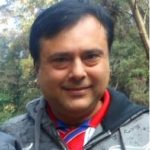
Avoiding Plagiarism and Predatory Journals
Research Publication of Tribhuvan University: 1998 to 2022
Date/Time: 07/15/23 12:15 AM – 12:45 AM ET
(07/15/23 10:00 AM -10:30 AM NST)
An analysis of research publications of Tribhuvan University in the last 25 years (1998-2022) will be presented and discussed. A comparison will be made with the annual publication rate of TU and Delhi University, Jawahar Lal Nehru University, India Innsbruck University, Austria, and Clemson University, USA for the same period. In addition, strengths, weaknesses, and challenges concerning interdisciplinary and multidisciplinary research outcomes of TU will be interpreted. Finally, a connection between the citations of articles published by the TU family and the Times Higher Education World University ranking of TU will be discussed.
Tips for Writing and Publishing a Scientific Paper
Manh-Huong Phan
Date/Time: 07/16/23, 11:00 AM – 12:00 PM ET
(8:45 PM – 9:45 PM NST)
Department of Physics, University of South Florida, Tampa, Florida 33620, USA
Email: phanm@usf.edu
Science plays a pivotal role in our daily lives. Sharing new scientific discoveries and findings in the form of a journal paper with the scientific community is the responsibility of scientists but a challenging task. With over 20 years of experience in research, publishing over 300 peer-reviewed papers, reviewing more than 150 international journals, and serving as the Managing Editor/Scientific Editor for three prestigious ISI journals, Prof. Manh-Huong Phan will share his experience with young researchers who are passionate about scientific research through his lecture “Tips for Writing and Publishing a Scientific Paper”. The researchers will be guided on how to write a good scientific paper, how to choose a right journal to publish their results, how to communicate with a journal editor, and how to respond to reviewers’ comments.
Biography: Dr. Manh-Huong Phan is a Full Professor of Physics at the University of South Florida. He received a Ph.D. degree in Engineering Physics from Bristol University – UK in 2006, a M.S. degree in Applied Physics from Chungbuk National University – South Korea in 2003, and a B.S. degree in Physics from Vietnam National University – Hanoi in 2000. He is a leading expert in the development of advanced magnetocaloric and magnetoimpedance materials for energy-efficient magnetic refrigeration and smart sensor technologies, respectively. Recently, his group has discovered tunable room-temperature ferromagnetism in atomically thin van der Waals materials that have the potential to transform the fields of spintronics, opto-spin-caloritronics, valleytronics, and quantum computation. He has published more than 300 peer-reviewed ISI journal papers (over 14,500 citations, h-index: 60 from Google Scholar), 10 review papers, 8 book chapters, and 1 textbook. Presently, he serves as Managing Editor/Founding Member for the Journal of Science: Advanced Materials and Devices (IF = 7.38), the Editor for Applied Sciences (IF = 2.838), and the Editorial Board Member of Scientific Reports (IF = 4.379). He was awarded an Honorary Doctorate Degree by Vietnam National University – Hanoi (2021), a Certificate of Merit for the Development of Physical Sciences in Vietnam by the Minister of Science and Technology of Vietnam (2021), the recipient of The USF Outstanding Faculty Research Achievement Awards (2017, 2019, 2021), the recipient of The USF Outstanding Graduate Faculty Mentor Award (2018, HM), and the recipient of The Honorary Medal by Vietnam National University – Hanoi (2018). He has been featured in the list of the World’s Top 2 Percent Scientists (2019-present). He has delivered plenary, keynote and invited talks at professional meetings on Magnetism and Magnetic Materials (MMM, ICM, APS, MRS, INTERMAG, TMS, etc.) and organized numerous international conferences on Magnetism, Nanomaterials, and Nanotechnology.
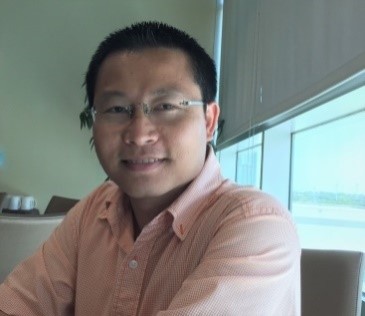
Open-Source Resources in Scientific Research and Engineering
Date/Time: 07/16/26 12:00PM – 12:30 PM ET
(07/16/26 9:45 PM – 10:15 PM)
Speakers
Biography: Dr. Mohammad Islam is a Consultant at WSP-USA. He received his Ph.D. in Civil Engineering from University of New South Wales, Australia 2014, a MSc in Civil and Environmental Engineering from Saitama University, Japan, in 2009, and a BSc in Civil Engineering from Rajshahi University of Engineering and Technology, Bangladesh, in 2004. His research interests are the physics of fluid flow (miscible and immiscible), heat transport, and mass transport through multiphase porous materials (e.g., clay, sand, and rock). Application domains of his research are constitutive modeling of geomaterials, finite element and discrete element code development, CO2 sequestration, wellbore integrity, methane hydrate, geothermal energy, hazardous waste disposal, fracture in porous media, enhanced oil and gas recovery, roadway embankment and ground improvement. He is a leading consultant in Geotechnical Engineering, Pavement Engineering, Tunnel Engineering, Infrastructure, Historic Structures, and Forensic Investigations.
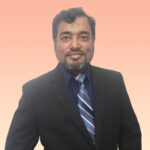
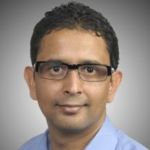
Biography: Dr. Paudel is a senior staff (Leidos Inc) at the U.S. Department of Energy (DoE) National Energy Technology Laboratory (NETL), Pittsburgh, PA. His research focuses on computational and theoretical nanoscience for design and optimization of functional materials, and sensing and detection of value-added products at
unprecedent limit to ensure safe and secure utilization of energy. He has played a significant role in establishing and nurturing the quantum information science (QIS) program from its inception at NETL. In the past, he developed theoretical and computational models of quantum memories, single spin-photon entanglement for remote quantum link, models for gas separation and tritium diffusion dynamics in the solid systems. Dr. Paudel received his PhD from the University of Central Florida, Orlando, FL in physics. Prior to the current role, Dr. Paudel was an ORISE research fellow at NETL. His research interest includes, but not limited to, development of functional materials that are capable to work at elevated environmental conditions, quantum sensing and applications of quantum computing and simulations for small molecular systems relevant to the energy applications.
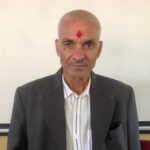
KEYNOTE TALK
Date/Time: July 16th, 12:30 PM ET
(10:15 PM NST)
“Physics Research in Nepal: An Overview”
Biography
Lok Narayan Jha, the youngest son of (late) father Dev Narayan Jha and (late) mother Ganga Devi Jha was born on 15 December 1950 AD at Marar (Sirha-16), Nepal. He was educated in Nepal until his M.Sc. (Physics) degree in 1969 from the Central Department of Physics (CDP), Tribhuvan University (TU). Later on, he was awarded Ph.D. degree in 1986 from Delhi University in India. Teaching/Research has been his professional interest. He began the job in CDP/TU in 1970 and retired in December 2013. During his 4 (four) decades carrier he spent on different aspects of the professional assignments. His teaching-research has been in the fields of Nuclear/Plasma/Theoretical Physics and has supervised 4 (four) Ph.D. Scholars and dozens of dissertations of M.Sc. students in other areas as well, such as Bio-medical, Liquid crystal, Nuclear and mainly in the theoretical aspects of Laser Plasma Fusion. During all these he was decorated with a few national awards such as RONAST Young Scientist Award in 1988, Mahendra Vidya Bhooshan (twice), Prawal Jansewa Shree (Class-I), Education Award etc. In addition to teaching-research he was assigned the role of the Head at CDP, Asst. Dean/IoST, Subject Committees (Physics, Environmental and Computer Science), Senate (TU), Academic Council and IoST Faculty Board etc. Furthermore, he was also elected Secretary (1-term) and President (2-terms) of Nepal Physical Society.
